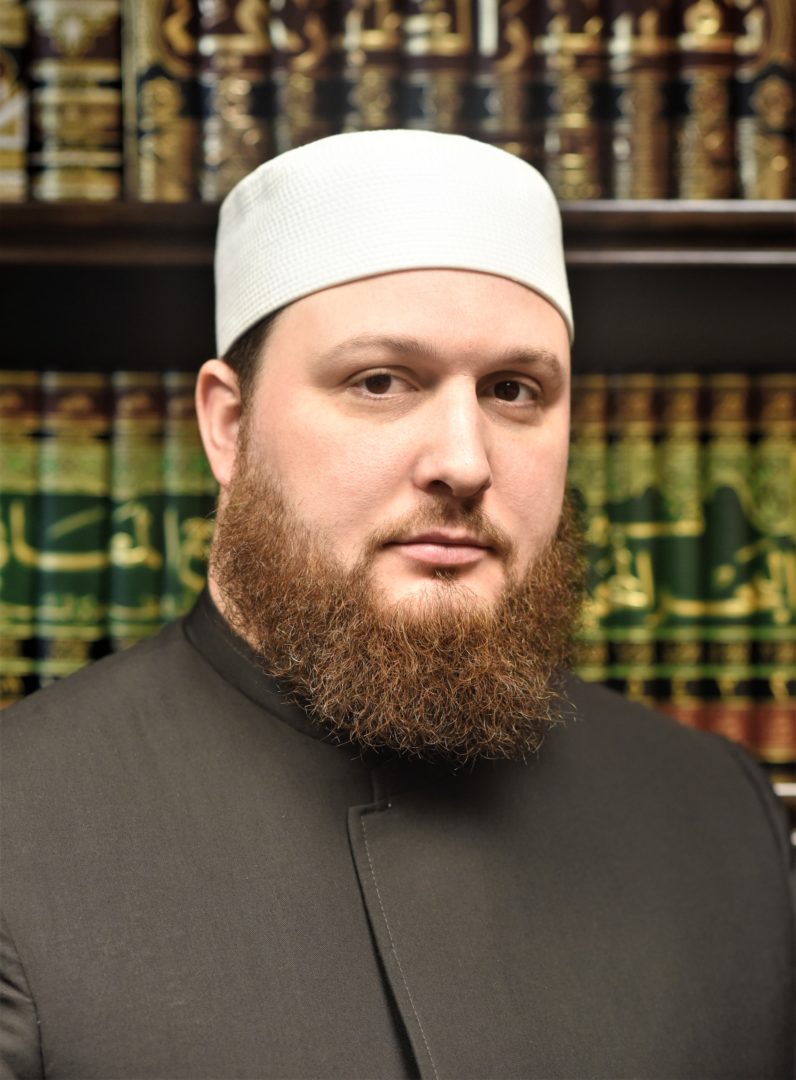Our Father’s Great Sacrifice: Why We Celebrate Eid ul Adha

And he said, “Indeed, I will go to [where I am ordered by] my Lord; He will guide me. My Lord, grant me [a child] from among the righteous.” So We gave him the good news of a forbearing boy. And when he reached [the age of] serious work with him, he said, “O my son, indeed I have seen in a vision that I [must] sacrifice you, so see what your opinion is.”He said, “O my father, do as you are commanded. You will find me, if Allah wills, of the steadfast.” And when they had both submitted and he put him down upon his forehead, We called to him, “O Ibrahim, You have fulfilled the vision.” Indeed, We thus reward the doers of good. Indeed, this was the clear trial. And We ransomed him with a great sacrifice, and We left for him [favorable mention] among later generations” Peace upon Ibrahim” (Quran 37:99-109).
In these verses, Allah relates to us one of the most profound instances of total servitude to Him that has ever been exhibited in human history. We are told of Ibrahim migrating from his people and his home to find a place to worship Allah in safety. His people, his own family including his father attempted to kill him. When this failed, Ibrahim turned to Allah in hijrah (migration) with total conviction and trust that Allah would be his keeper on this journey. He left with only his dutiful wife, Sarah, saying to her at one point: “Sarah, there isn’t on the face of the earth a believer aside from you and me” (Sahih Bukhari: 3358/ Sahih Muslim: 2371). Despite this profound loneliness and great fear of his legacy dying with him, he persevered, praying to Allah for a righteous offspring to carry his heritage. We do not know how many years passed between Ibrahim’s supplication and the gift of a son, but according to some historians, such as Ibn Katheer, it was at least twenty years.
After much prayer, patience, and trust in Allah, at the age of 86, Ibrahim was finally granted a son of piety and righteousness. But with every blessing comes a test. That test is always fashioned to penetrate our deepest corners; to test the depths of our souls and push our buttons as it were, to increase the wicked with wickedness and the righteous with strength and resilience. After so much waiting, no sooner was he blessed with his son, Ismail, than he was to be taken away, and not just by anyone or anything, but Ibrahim was to take his son’s life with his own two hands, the same two hands he had raised so many times asking Allah, begging Allah for this invaluable gift. Ibrahim was commanded to slaughter his one and only son. Ibrahim never wavered, not even for a moment, saying: “I have seen in a vision that I am slaughtering you, so tell me then what your opinion is.” We notice how Ibrahim never lost his total trust in Allah not even for a moment, so much so that he did not ascribe the command to Allah as it may imply some sort of folly to Allah’s command in the mind of the listener. The command to slaughter such a righteous boy while the earth is filled with unworthy souls is not something the rational mind can easily understand. One may question, why? What good could possibly come from such a command? Yet this question never came up.
Neither Ibrahim nor Ismail ever questioned Allah’s command; they were in total submission and obedience to Allah and His will. As Ibrahim took his only son and laid him on his belly, so as not to look into his eyes as he drew his final breath, he takes the sharpened blade and runs it across his beloved’s throat. Suddenly, a piercing light came through the darkness bestowing Allah’s relief. Ibrahim fulfilled Allah’s command without shedding his son’s blood. “Indeed Allah does not judge you based on neither your outward images nor your wealth, rather He judges you based on your hearts and actions” (Sahih Muslim: 4779). Ibrahim took every step with the intention to slaughter his son as commanded, yet Allah decided a different outcome. Ibrahim was given a ram in his son’s stead, to be slaughtered and the meat to be distributed to feed the poor and needy. Hence, Ibrahim fulfilled his destiny to become the Father of the Prophets as it were, one who was willing to slaughter his own flesh and blood to feed the needy amongst his followers. He became, as Allah said: “And mention, when Ibrahim was tried by his Lord with words [i.e., commands] and he fulfilled them. Allah said, “Indeed, I will make you a leader for the people” (2:124).
This great sacrifice our Father Ibrahim made on our behalf, his ultimate reliance on Allah and his subsequent reward, is honored as Eid ul Adha. This is why we celebrate every year on the 10th day of Dhul Hijjah. Ibrahim was tested with the most unfathomable test. We are to merely carry on this legacy. We do not slaughter our children nor are we commanded to; we are instead instructed to reap the fruits of our forefather’s sacrifice and continue this tradition for generations to follow. It is for this reason the Prophet Muhammad (PBUH) says: “Whoever does not sacrifice whilst having the ability to do so, should not even come near our place of prayer” (Ibn Majah: 3123). In other words, it is as If to say, if you do not do your part to uphold the legacy of Prophet Ibrahim, so long as you are able to, then as a Muslim, you have missed the entire point of what we celebrate on this day.
By Sh. Ali Mashhour

